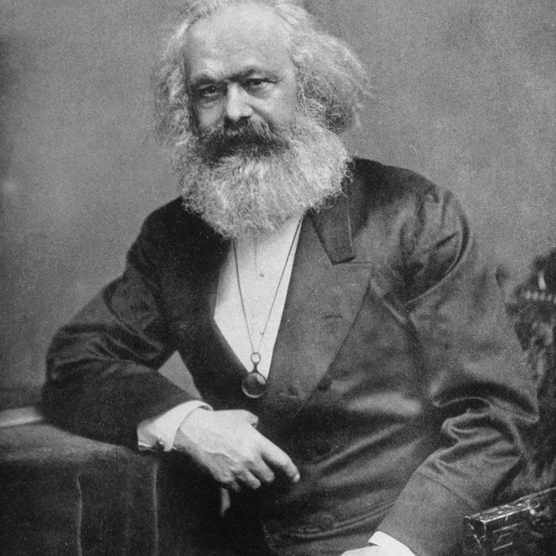QLD Government launches electric vehicle subsidy

From July 1, the Queensland government will provide a $3000 subsidy for anyone buying an electric vehicle valued up to $58,000.
The government has also committed $10 million to building more public charging stations for electric vehicles.
As has been noted post-announcement by many members of the public, the $58,000 price tag falls just suspiciously short of the $63,000 entry level price of the Tesla Model 3.
There are a few decent brand name electric vehicles that qualify under this price tag including the Nissan Leaf.
Would a subsidy of $3000 encourage you to buy an electric vehicle as your next car purchase? Or would you need a subsidy closer to that offered in Sweden of $8,600 to consider it?


While in other countries the subside is over USD$7000 here in Australia is not even half of that, this goverment is a serious discriminatory politicians, Australians are been treated like a third word citizens, this government does not care about us neither the environment, shame on you and your well paid politicians, that only have caused us a lots of pain and suffer.

There are already subsidies for EVs that have not had much of an uptake. When you are looking at >$60+ entry level $3000 would certainly not incentivise me!

I cant wait for the Chinese to get into the Australian market place, I would think about 2 years from now there will be Chinese EVs here at a competitive price with IC vehicles. The days of coal, gas and oil will soon be over

There is a bit of water to flow under the bridge before EVs become truly acceptable here in Australia. Over the next year there will undoubtably be significant improvements in EVs that will make them more acceptable to the ordinary person.

There is a bit of water to flow under the bridge before EVs become truly acceptable here in Australia.
Agree Tom Tank.

It matters not a jot what governments, motoring organisations or motor magazines are trying to convince us to go electric, the truth is that sales of EV's are still low to non-existent. The latest figures available show that in 2020 there were 916,918 new cars were sold in Australia with about 5,500 of those being EV's. Australia is the slowest country to take up EV's and it is thought that the size of Australia plus our love for cars is behind that statistic.
We are being told all of the good things about EV's and none of the problems. We are told that we can access a "fast" charge when we are travelling but we are not told how quickly a "fast" charge will be or if that will completely charge a battery. No mention of costs or availability of charging points. A fill of fuel at present takes about 5 minutes from stop to be back on the road and on busy holiday times that can be extended to about 10 minutes. Will there be as many charging points as there are fuel outlets?
The despicable war in Ukraine has thrown up an interesting problem. Germany has gone green and is phasing out coal and nuclear power plants. Russia supplies about 40% of Germany's gas and if Russia chooses to stop supplying gas, Germany will be in all sorts of problems. If we liken this to Australia, the climate change zealots want Australia to stop using coal and gas and rely only on renewables. If we strike a few wet days where solar power is well below optimum levels and there is no wind, that will be the same as Russia turning off the gas to Germany; we will have no electricity. Good luck trying to charge your EV.

There is no environmental, ethical or moral reason why the Government should be subsidising the purchase of electric vehicles. The emissions from present generation ICE powered vehicles pose no threat to the environment or the populace.
The lowest price EVs sit at over $15,000 over the cost of an equivalent ICEV. That buys a lot of liquid fuel, more than enough in most cases for a lifetime of motoring.
Even the much promoted hybrids give little benefit when the cost impost is compared to the conventional models.
If the hybrids and EVs were at a stage of being truly fit for purpose and price comparable, buyers would not need any subsidy incentive.
Unfortunately due to the miniscule size of the Australian car market in global terms, we will have no choice within 5 to 7 years as apart from a couple of niche bespoke manufacturers and we will be forced into vehicles that cannot do all that our present offerings can.
This is a situation that is being forced into the market by politics and not science.

Nonsense! Which science are you talking about exactly?
By choosing to drive an EV you are helping to reduce harmful air pollution from exhaust emissions. Yes, at the moment, they are not perfect, but then nothing is perfect at the start. The batteries for these vehicles need more research and researchers are now looking into ways of recycling car batteries on a large scale.
Whichever way you look at it, the positive effects electric cars have on the environment, outweigh any negative impacts from sourcing lithium, used in electric car batteries.
Speaking from my own experience, I own a hybrid and am very pleased with the cost factor and the performance. You need to do more research Couldabeen.

"This is a situation that is being forced into the market by politics and not science. "
No, this is being driven by manufactures who are pushing politicians into doing something about climate change and pollution because they agree with the real science released by the majority of qualified scientists.
Even the power industry is telling the Goslow Scumo grubbyment that they are taking the initiative because the current lot of 3rd rate politicians running the country refuse to listen to the real results from qualified scientists who are on the ground witnessing the results of climate change on a daily basis. Our 3rd rate LNP with Captain Scumo at the helm and a lump of coal in his hand would rather listen to conspiracy theories being posted on social media than real science. But maybe our leader will go home tonight and ask Jenny what she thinks he should do.

The $3000 would be better spent in providing more public charging stations for electric vehicles.
Until the infrastructure is built I do not believe people will be induced to buy EV vehicles.
Also as Couldabeen points out there is great disparity in the price of EVs and ICEVs.

My postie now drives an electric buggy, didn't hear him coming the other day and nearly got ran over.


A great Idea and incentive. Just hope this also includes all EV's including motorcycles & scooters.